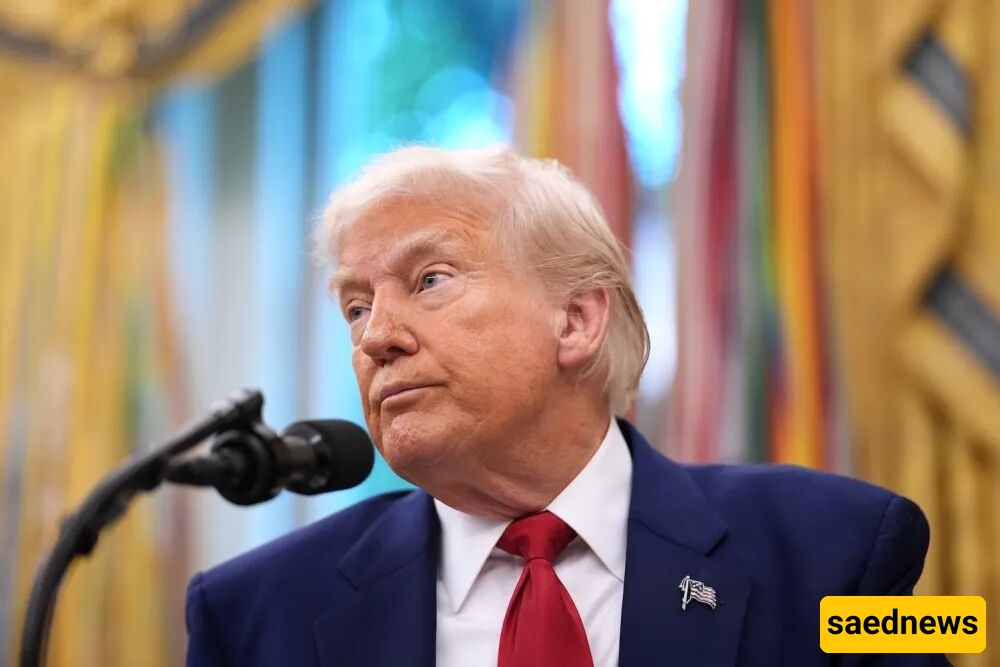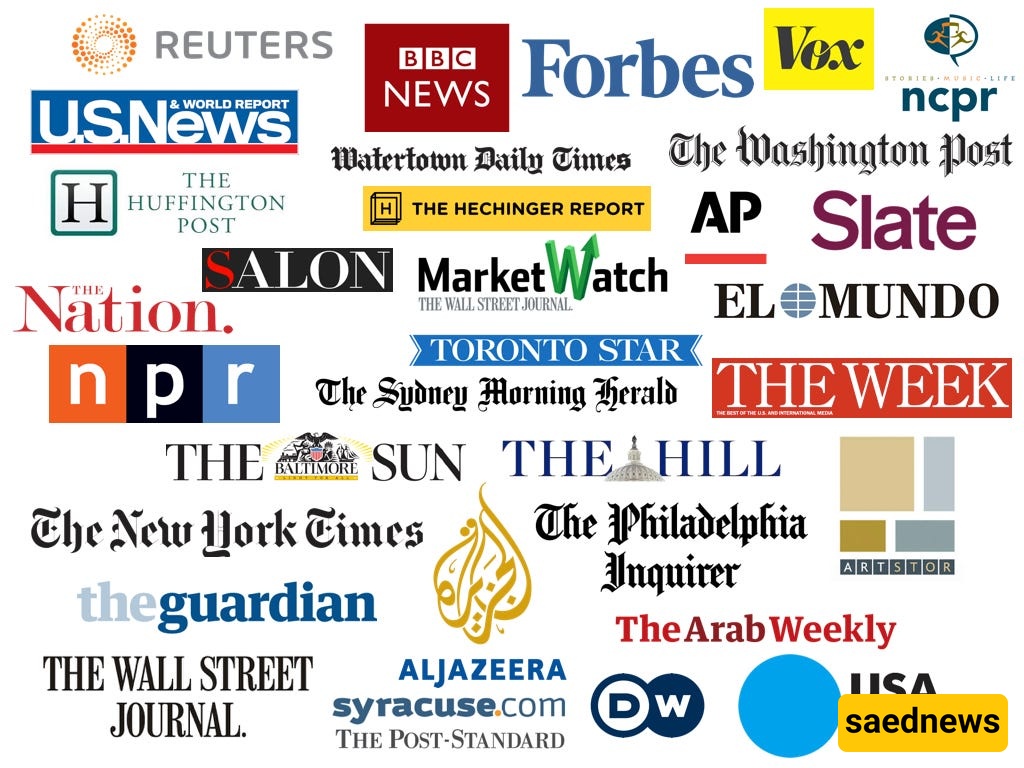SAEDNEWS: The international media landscape erupted with concern and condemnation following former U.S. President Donald Trump’s admission of launching direct airstrikes on Iran’s nuclear facilities.

According to Saed News, international media and analysts have expressed deep concern over the recent U.S. military strikes on Iranian nuclear facilities, carried out under the directive of former President Donald Trump. The move, perceived as a direct escalation in the Iran-Israel conflict, has drawn criticism not only from foreign governments but also from legal scholars and editorial boards across the world.
Trump took to his social media platform, Truth Social, to announce what he called a "highly successful strike" on Iran’s Fordow, Natanz, and Isfahan nuclear facilities. The acknowledgement confirmed growing fears that Washington had moved from tacit support to active military engagement alongside Israel.
Sky News Middle East correspondent Alistair Bunkall warned that Iran’s response could be significant and potentially involve targeting U.S. military bases or disrupting international shipping lanes, including the Strait of Hormuz. "Iran may not hesitate to retaliate, and it holds several strategic levers," he wrote.

The New York Times declared flatly: “The U.S. Is Now at War with Iran.” Citing foreign policy experts, the paper reported that Trump’s decision marked the beginning of a volatile and unpredictable chapter in regional politics. “This is a new and potentially turbulent phase,” said Ray Takeyh, senior fellow for Middle East studies at the Council on Foreign Relations.
CNN’s Stephen Collinson argued that Trump’s move constituted a unilateral overreach of presidential authority, breaking with the cautious stance of his predecessors who avoided such direct action to prevent full-scale war with Iran.
The Guardian, quoting international law expert Donald Rothwell, stated that it is “virtually impossible” to legally justify the U.S. airstrikes under current international law. The paper emphasized that legal scholars see no provision under the UN Charter that permits preemptive strikes of this nature, such as the June 13 Israeli attack on Iran.
Al Jazeera English echoed the growing unease, writing that there is no guarantee Iran will remain restrained, nor that Israel or the U.S. will halt their actions if Tehran does not respond. “The cycle of retaliation may now be irreversible,” the network suggested.
South Korea’s Yonhap News Agency highlighted the contradiction in Trump’s approach, noting that the strike contradicts his proclaimed “America First” policy, which ostensibly discourages foreign military entanglements.
The Intercept, a U.S.-based investigative outlet, said bluntly: “The man who called himself a peacemaker is dragging America into another war.” Meanwhile, The Associated Press warned that America is now directly involved in the Israel-Iran conflict—a dangerous escalation.
Following the attack, Iran’s Atomic Energy Organisation issued a statement condemning the assault as “savage” and in direct violation of international law, particularly the Nuclear Non-Proliferation Treaty (NPT), under which the targeted facilities are monitored by the International Atomic Energy Agency (IAEA). The organisation accused both the U.S. and Israel of undermining international norms and stated that parts of the international community, including the IAEA, had turned a blind eye—or worse, enabled—the aggression.
The agency reaffirmed its commitment to Iran’s nuclear development, vowing that “this national industry, stained with the blood of our nuclear martyrs, will not be derailed.” It also confirmed that legal steps are being pursued in defence of Iran’s sovereign rights.
The U.S. strike on Iranian nuclear sites is no longer seen as a show of strength—it’s being interpreted as a reaction to strategic missteps, legal ambiguity, and the inability of proxy powers to contain a regional rival. As world leaders and institutions weigh the consequences, one thing is certain: the global order may have just entered a new phase of instability.

